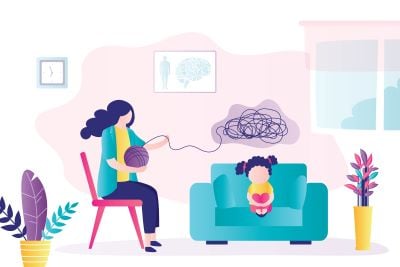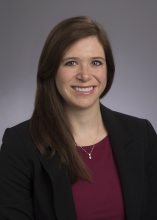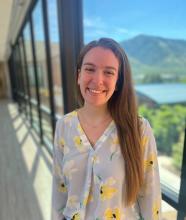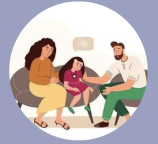Everything You Wanted to Know About IOPs for Pediatric OCD
Everything You Wanted to Know About IOPs for Pediatric OCD

What is an Intensive Outpatient Program (IOP)?
An IOP is designed to provide more intensive treatment to patients who do not respond to traditional weekly outpatient therapy or whose symptoms are especially severe. Intensive programs for OCD can serve as a bridge between different levels of care, specifically as a step-up from weekly outpatient therapy or as a step-down from partial hospitalization/residential programs. They often involve approximately 8 to 15 hours of OCD treatment per week delivered across 1 to 8 weeks, either in an individual, group, or combination format. IOPs can reduce time missed from school or other activities while offering enhancements that traditional outpatient therapy cannot, including longer exposures, increased familial engagement, and greater peer support (Lewin et al., 2005, Guo et al., 2020; Schneider & Petersen, under review).
Who benefits from an IOP?
Some patients prefer the intensive format to target symptoms -- even mild to moderate ones -- rapidly. These patients may not even have previous outpatient experience. Patients who have plateaued in traditional treatment or who are struggling to complete out-of-session practice may also benefit from the increased structure and focus built into an IOP. Other patients require an IOP because of the symptom severity and impairment that they experience. For these patients, regular outpatient therapy is not enough to address their OCD interference, and the weekly therapy timeline for improvement may feel too long. However, patients who do best in an IOP setting are usually still able to attend school, generally participate in daily life, and do some exposure work independently. Of note, if symptoms prohibit school attendance, the patient struggles to leave their house, they are unable to engage in self-directed exposures, or they are engaged in constant disruptive rituals, then the patient may benefit more from a partial hospitalization or residential setting.
What is an example of IOP programming?
There is a wide range of IOP formats. Some IOPs are individualized and include daily extended individual therapy sessions, while others incorporate group formats.
As an example, the Child OCD Program at Emory (COPE) is a telehealth-based IOP that involves group, individual, family, and multifamily group therapies for a total of 10 hours of treatment per week for 4, 8, or 12 weeks depending on clinical need (Schneider & Petersen, under review). Each treatment day consists of 1 hour of a skills group followed by 1 hour of ERP, and patients also receive 1 weekly hour of individual therapy and of family therapy. Skills groups are delivered according to an 8-week protocol, with each day consisting of a different group (Mondays - multifamily, Tuesdays – dialectical behavior therapy (DBT), Wednesdays – DNA-V, Thursdays – support) and each week featuring a different theme (e.g., for the DNA-V group, week 1 – overview, week 2 – values, week 3 – notice, week 4 – choice point, week 5 – advisor, week 6 – discoverer, week 7 – self-as-context, week 8 – self-compassion).
DNA-V Groups
The DNA-V model adapts the psychological flexibility framework of acceptance and commitment therapy (ACT) using developmental theory and positive psychology to capture the specific needs of youth (Hayes & Ciarrochi, 2015). DNA-V uses three characters (Discoverer, Noticer, and Advisor) and values to teach ACT skills in a developmentally-friendly manner, including practice with acceptance, mindfulness, willingness, values, defusion, and choice points. Adolescents attend a teen-only DNA-V group, as well as a multifamily ACT-based group with their parents. The multifamily group emphasizes applying DNA-V and ACT concepts to the family and facilitates communication about the OCD experience within and between families.
Group ERP
Exposures are done as a larger group, or in small group or individual settings using breakout rooms, depending on the schedule and needs of group members. The final 10 minutes of each ERP group is spent debriefing exposures and sharing one takeaway. One group per week features exposure games designed to infuse humor and playfulness into the exposures, often facilitating defusion. For example, recent group ERP activities include playing charades using individualized OCD fears, OCD Olympics (e.g., speed reading), creating OCD’s Instagram account, and playing truth or dare with ERP dares.
Additional Groups
Because many adolescents report co-occurring emotion dysregulation, self-harm, and/or suicidal ideation, we also incorporate an ACT- and ERP-consistent DBT group to provide skills to manage other symptoms that may be getting in the way of OCD treatment. Additionally, we offer a weekly support group to facilitate peer connection and cohesion within the virtual format.
What happens after the IOP?
It is expected that patients will step down to regular outpatient therapy to work on their OCD after completing the program. If they were previously seeing an OCD specialist, they will return to that therapist. If they did not have a therapist who specializes in ERP, the IOP staff will usually try to connect them with an OCD specialist prior to leaving the program.
How do I find an IOP near me?
There are several pediatric OCD IOPs located in academic medical centers, standalone clinics, and private practices across the country. ADAA offers a Find-Your- Therapist directory and a Residential Treatment Centers guide to help you find an intensive treatment program. The International OCD Foundation (IOCDF) also has a list of programs available.
This post is presented in collaboration with ADAA's OCD and Related Disorders SIG. Learn more about the SIG.
References
- Guo, S., Rozenman, M., Bennett, S. M., Peris, T. S., & Bergman, R. L. (2020). Flexible adaptation of evidence-based treatment principles and practices in an intensive outpatient setting for pediatric OCD. Evidence-Based Practice in Child and Adolescent Mental Health, 5(3), 301-321.
- Hayes, L. L., & Ciarrochi, J. V. (2015). The thriving adolescent: Using acceptance and commitment therapy and positive psychology to help teens manage emotions, achieve goals, and build connection. New Harbinger Publications.
- Lewin, A. B., Storch, E. A., Merlo, L. J., Adkins, J. W., Murphy, T., & Geffken, G. A. (2005). Intensive cognitive behavioral therapy for pediatric obsessive compulsive disorder: A treatment protocol for mental health providers. Psychological Services, 2(2), 91.
- Schneider, R. & Petersen, J. (under review). Feasibility, acceptability, and effectiveness of a telehealth-based intensive outpatient program incorporating acceptance and commitment therapy for adolescents with obsessive compulsive disorder. Journal of Contextual Behavioral Science.

















